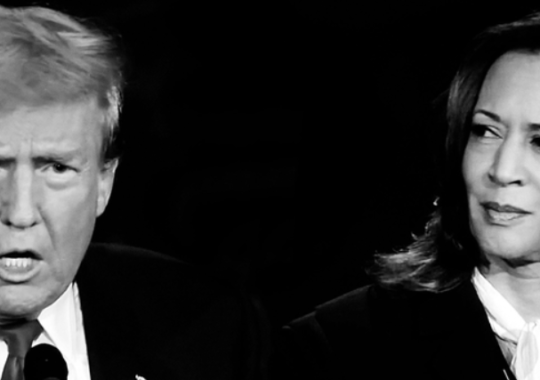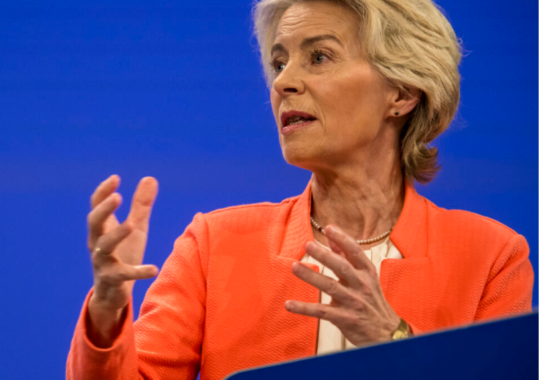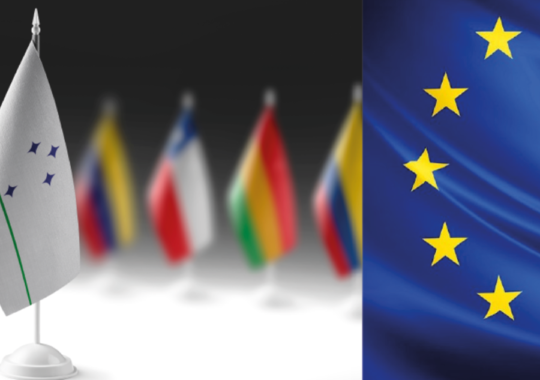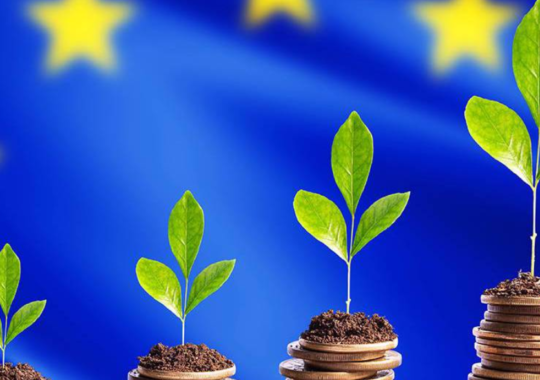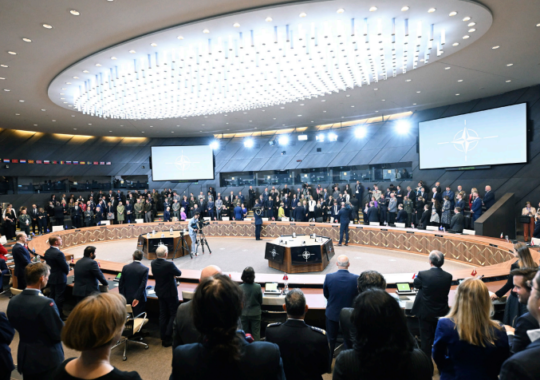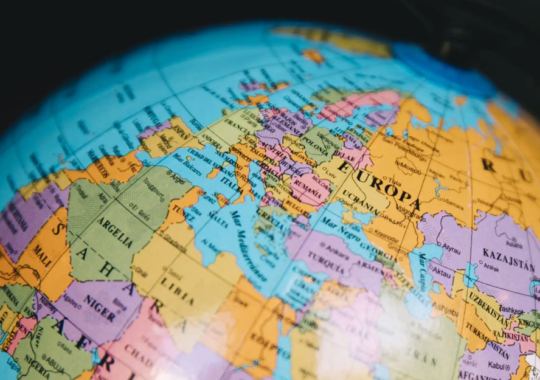Issue 10 – October 2024
From the 5th to the 12th of November, the European Parliament will hold the confirmation hearings of the 26 Commissioners-designate nominated by Ursula von der Leyen for the 2024-2029 term. Each candidate will be questioned by the members of the European Parliament representing one or more committees relevant to their respective responsibilities. To be confirmed, nominees must secure a two-thirds majority support from the committee chair and coordinators presiding over the hearing.
Several incoming high-ranking officials under scrutiny are new to the Brussels political scene and the written responses they will submit are expected to offer insights into their approach to their respective remits. Yet, most nominees’ answers are likely to echo prior or already known stances of the European Commission, often referring either to the political guidelines of President von der Leyen or to the mission letters she provided to each commissioner candidate. Nonetheless, the Commissioners-designate will also expect to be challenged by EU lawmakers, a process which should reveal how they plan to navigate their responsibilities, thus potentially altering existing policies and/or determining the extent to which they will adhere to von der Leyen’s guidelines.
As also happened in the previous legislative term, the European Parliament may reject one or more Commissioners-designate. However, while some of them are likely to be scrutinised more than others, both observers and insiders have remarked that significant conflicts could arise due to a seemingly weakened political majority supporting Ursula von der Leyen, rather than because of the confirmation hearings themselves. The last plenary vote on migration highlighted this dynamic, along with a dispute regarding key roles within the European Parliament’s research committee and working groups.
As remarked after the European elections and Ursula von der Leyen’s election, the centrist forces’ use of a“variable geometry”, namely by using the support of the right-wing block of the Parliament instead of finding a consensus with the S&D, the Liberals and the Greens, may impact on the capacity of finding a common ground among the political groups of the “grand coalition” in the foreseeable future during a notably crucial moment for the next legislative term and the EU at large.
Indeed, although the re-elected President assured that no “structured cooperation” would be in place, if the EPP parliamentary gamesmanship evolves into brinkmanship, the Parliament’s role vis-à-vis an increasingly “right-wing” Council will likely be weakened. In such a scenario, the EU’s policy agenda and the direction of future legislation would need to take into account this new policymaking landscape.
In any event, in this period of polycrisis and also in view of the US presidential election which will determine the new course of the American administration, the European Union urgently requires decisive action, as outlined in the Draghi Report. As a result, addressing critical issues such as, amongst others, competitiveness, security and energy will necessitate European leaders to identify mutually advantageous policy trades among both member states and European institutions.
By the end of 2024, more voters than ever in history will have headed to the polls as at least 64 countries, plus the European Union – representing a combined population of about 49% of the people in the world – had been holding and are meant to hold elections, whose results will prove consequential for the years to come.
Notwithstanding an evolving international context, the US elections remain of primary importance for the world in general and for the EU in particular. Indeed, as highlighted in a CER Policy Brief, for Europe, the upcoming US elections in November carry significant weight, especially in economic terms as the EU and the US share the world’s largest economic partnership, with goods and services traded between them exceeding €1 trillion annually. Each stand as the other’s top trade and investment partner and, over time, the EU has grown more reliant on the United States in absorbing its exports, with America serving as the ultimate global consumer, taking in production from both East Asia and Northern Europe. In this connection, the authors suggest that “the EU should take the offensive and seek to not only defend existing trade ties but boost transatlantic co-operation”.
If an offensive on the US seems necessary, notably, a trade offensive on China has already started. As far as China-EU trade relations are concerned, an ECFR Commentary highlights how the European Union’s decision to impose tariffs on Chinese electric vehicles marks a shift in its relationship with China as, in response, Beijing will need to adjust its approach to counter an increasingly assertive Brussels. In addition, the author notes that the decision to impose tariffs is a critical juncture for Ursula von der Leyen’s policy agenda. With that hurdle cleared, electric vehicles are merely the starting point, he adds. In fact, numerous other investigations are ongoing, including those concerning subsidies for wind turbines, public procurement of medical devices and the misconduct of Chinese fast-fashion brands. In fact, a new array of innovative tools is enabling a more assertive approach from Europe, he concludes.
On a similar note, an IFRI Paper shifts the focus to EU-Latin America relations. The authors argue that, in light of the current geopolitical changes and rising protectionist trends of major economies such as China and the US, there is a recognised necessity for closer cooperation with the Global South, especially the Mercosur countries. The paper also suggests that this transition could provide an opportunity to bridge historically divergent views on trade policy, as the Mercosur agreement allows the EU to strengthen its economic ties with South America and lessen its dependence on other global trading powers. The analysis emphasises the geopolitical and economic importance of the EU-Mercosur agreement for the European Union, particularly in shaping its incoming economic security strategy.
The importance of the international role of the EU has exponentially been in the spotlight of the previous EU legislative term. However, this legislative term will arguably be the most relevant in terms of implementing a fully-fledged “geopolitical EU” not only for the actual or perceived shifts of the international context, but also due to the increased attention paid to the inseparable duo of competitiveness and sustainability of the EU economy.
For these reasons, a CEPS Paper highlights that, at first glance, the EU’s 2024-29 policy agenda may seem centred on the technical execution of the extensive climate legislation outlined in the ‘Fit for 55’ package. Yet beyond these technicalities lie important strategic choices, particularly regarding how to enhance economic competitiveness without compromising climate integrity. Indeed, “energy will remain a key factor in the clean transition, with reducing high energy prices likely to be a political promise of Ursula von der Leyen’s second European Commission”. The shift towards a clean economy will undoubtedly transform the EU’s economic landscape. Increasing carbon costs and sustained high energy prices are already pushing certain industries to relocate, reduce operations, or reorganise. Green industrial policies require a calculated evaluation, as the choices made will have lasting effects on the future.
As far as the importance of the questions of competitiveness and sustainability of the EU economy is concerned, a Project Syndicate Commentary emphasises the financial aspect of the green transition by underlining that, as EU member states face ongoing financial strain, the bloc needs to identify ways to mobilise significant capital to invest in future green technologies, without drawing on existing revenue or funding sources. The author states that, since the European Parliament elections in June, EU policymakers have conveyed mixed messages about the prospects of new public funding for the commercialization and scaling of clean technologies. He reinforces his argument by stating that “greater clarity is needed” as “Europe is in a global race for leadership in green innovation, and the other competitors, especially the United States and China, have shown a clear commitment to winning”.
Within this context, the digital domain is also of primary importance not only regarding competitiveness-related questions, but also from a security viewpoint. Accordingly, a SWP Commentary insists on the importance of protecting critical infrastructures from cyberattacks, as well as on the fact that geopolitical confrontations and tensions extending beyond the cyberspace with major adversaries have, to a large extent, depleted the effectiveness of sanctions. The authors remark that, by aligning technical, political, and legal attribution efforts at the EU level, Member States could strengthen a victim-centred approach to cyber diplomacy.
Beyond any doubt, protecting critical infrastructures from cyberattacks is a question that stems from an increasingly confrontational landscape and, in the Old Continent, the US elections are also scrutinised in light of the consequences for Europe and the world at large.
In this connection, a Clingendael Report remarks that, since the outcomes of the US presidential elections could have vastly different implications for NATO and European security, it is challenging to reach a definitive conclusion before the 5th of November or even in early 2025, when the new President takes office. By illustrating a range of potential scenarios, the publication provides a clearer understanding of how the 2024 US elections might affect these issues, depending on who occupies the Oval Office and the security policies Washington chooses to implement.
On the same note, a Finabel Publication analyses the evolution of Ukraine’s defence industry and the lessons which should be learnt by the Old Continent. As the Russian full-scale invasion of Ukraine approaches its third year, discussions about supporting the war-torn nation are increasingly focusing on strengthening Ukraine’s domestic defense industry to enhance its autonomy against a larger and more resource-rich adversary, the author prefaces. Meanwhile, in 2023, the former Ukrainian Minister of Strategic Industries indicated that the EU could also gain insights from this process by studying the development of Ukraine’s defense sector. The author also provides a brief overview of the state of the country’s industry before and after the conflict with Russia, as well as a summary of the key lessons the EU can learn from the Ukrainian experience.
Last but not least, an ECDPM Commentary advocates for greater attention on the offer that Europe can make to the Global South in general, and Africa in particular, rather than competing with China. Accordingly, the authors argue that the political guidelines of the incoming European Commission led by Ursula von der Leyen are shaped by an “age of geostrategic rivalries”. China, in particular, is singled out due to its monopoly on critical raw minerals and its support for Russia’s war against Ukraine. Recent EU tariffs on Chinese electric vehicles, retaliatory measures from China and wider trade imbalances between Europe and Beijing have brought the relationship to its lowest point in decades. The authors highlight that these bilateral tensions influence the way the EU perceives China’s role in the Global South, particularly in Africa. In fact, China’s involvement in Africa is not only seen as diminishing Europe’s influence and opportunities, but also as promoting a model of development and governance that is detrimental to Africa.
This editorial is authored by Massimiliano Gobbato, Communications Director. Contributions by PubAffairs Communications Team’s Nicole Finucci, Kristina Vilenica and Jacopo Bosica to the drafting of ‘The Finder’ are gratefully acknowledged.
From our Editorial Partners
Surviving Trump 2.0: What does the US election mean for Europe's economy? | Centre for European Reform (CER)
For Europe, the stakes are high in the US elections in November. The EU-US economic relationship is the world’s largest – the value of traded goods and services is more than €1 trillion per year, and each is the other’s largest partner in both trade and investment. The EU has over time become increasingly dependent on the US to soak up its exports. The US has long been the global consumer of last resort, absorbing production from both East Asia and Northern Europe.
From Brussels with leverage: How the EU is recalibrating its China strategy | European Council on Foreign Relations (ECFR)
European Commission president Ursula von der Leyen has just scored an important victory. From next week, the European Union will impose tariffs on Chinese electric vehicles for the next five years. Von der Leyen is not like Trump – a fan of slinging tariffs on friends and foes alike – but she is determined to adjust the EU’s approach to China to fit a new reality. And she has rallied the collective power of the Brussels bureaucracy to deliver.
Between „Strategic autonomy” and „Zeitenwende”: The importance of trade between the EU and Mercosur | Institut français des relations internationales (Ifri)
In view of geopolitical changes and growing protectionist tendencies of large economies such as China and the USA, closer co-operation with the Global South, including the Mercosur countries, is considered necessary. Germany and France have reorganized their trade policies, in particular through a joint industrial strategy and a derisking strategy to reduce economic vulnerabilities, which could represent an opportunity to bring together traditionally different views of trade policy.
Between a rock and a hard place: energy and carbon in the new political cycle | Centre for European Policy Studies (CEPS)
At first glance, the EU’s 2024-29 policy cycle may appear focused on the technical implementation of the vast amount of climate legislation agreed under the Fit for 55 package. Yet beneath these technicalities lie important strategic choices. Chief among them is how to boost economic competitiveness while safeguarding climate credibility.
The key that unlocks Cleantech financing in Europe | Project Syndicate
Funding climate innovation appears to have lost its shine for European policymakers. Unless this changes soon, the European Union risks losing its status as a pioneer in climate-related technologies.
The attribution dividend: Protecting critical infrastructure from cyber attacks | SWP
Pipeline ruptures in the Baltic Sea, cut data cables, and disruptions of satellite communications are raising questions in European capitals about how to respond to suspected attacks against critical infrastructure. Addressing incidents affecting Germany and at least six other member states, NATO allies in early May called attention to the scope of detected Russian efforts to destabilize supporters of Ukraine.
The US elections and the future of NATO: A scenario analysis | Clingendael
The NATO Washington Summit in July 2024 demonstrated unity on important issues like the support for Ukraine, the strengthening of the Alliance’s deterrence and defence posture, the Russian threat and the challenges posed by China. Yet, on the road to the next NATO Summit in June 2025 in The Hague many obstacles could appear, quickly turning the positive tone into a dissonance.
The evolution of Ukraine’s defence industry and lessons for the European Union | Finabel
The Russian full-scale invasion of Ukraine is entering its third year, and the debate around aiding the war-torn country is increasingly shifting towards empowering Ukraine’s domestic defence industry, to make it more autonomous against a larger and more resourceful opponent. At the same time, in 2023 the former Ukrainian Minister of Strategic Industries Oleksandr Kamyshin suggested that the EU could also benefit from this process by learning from the evolution of Ukraine’s defence industry (EDA, 2023).
A stronger EU offer to partners: Beyond power play and competition | European Centre for Development Policy Management (EDCPM)
The political guidelines of the incoming European Commission led by Ursula von der Leyen – the so-called VdL 2.0 Commission – are shaped by an “age of geostrategic rivalries”. China, in particular, is singled out due to its monopoly on critical raw minerals and its support for Russia’s war against Ukraine.


